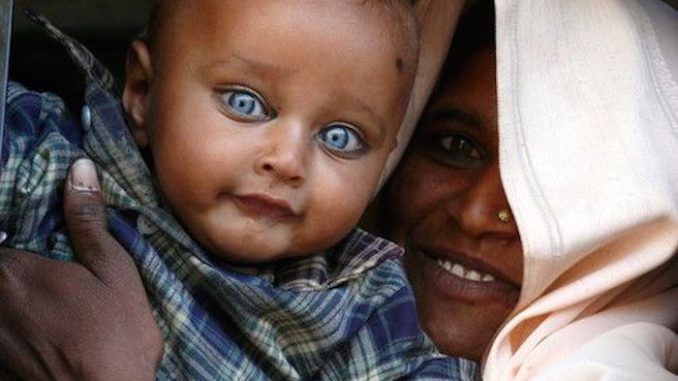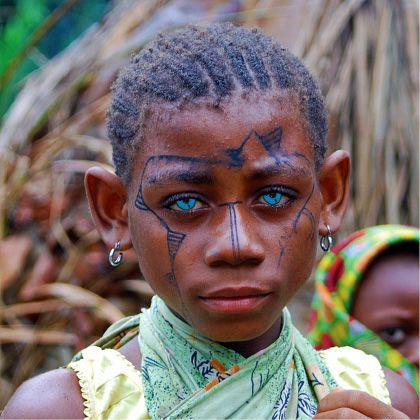
People from Melanesia contain traces of DNA belonging to an unknown species, according to an exciting new computer analysis.
Scientists say that Melanesians, people from a region in the South Pacific, contain DNA of an unknown human species in their genetic makeup.
Ryan Bohlender told the annual meeting of the American Society of Human Genetics that the DNA was very unlikely to be Neanderthal or Denisovan – but is likely a third, unknown “human” relative.

BYPASS THE CENSORS
Sign up to get unfiltered news delivered straight to your inbox.
You can unsubscribe any time. By subscribing you agree to our Terms of Use
Sciencealert.com reports:
“We’re missing a population, or we’re misunderstanding something about the relationships,” Ryan Bohlender, a statistical geneticist from the University of Texas, told Tina Hesman Saey at Science News.

Bohlender and his team have been investigating the percentages of extincthominid DNA that modern humans still carry today, and say they’ve found discrepancies in previous analyses that suggest our mingling with Neanderthals and Denisovans isn’t the whole story.
It’s thought that between 100,000 and 60,000 years ago, our early ancestors migrated out of Africa, and first made contact with other hominid species living on the Eurasian landmass.
This contact left a mark on our species that can still be found today, with Europeans and Asians carrying distinct genetic variants of Neanderthal DNA in their own genomes.
And that’s not all they’ve given us.
Earlier this year, researchers investigated certain genetic variants that people of European descent inherited from Neanderthals, and found that they’re associated with several health problems, including a slightly increased risk of depression, heart attack, and a number of skin disorders.
And a separate study published earlier this month found evidence that modern genital warts – otherwise known as the human papillomavirus (HPV) – were sexually transmitted to Homo sapiens after our ancestors slept with Neanderthals and Denisovans once they left Africa.
While our relationship with Neanderthals has been widely researched, how we interacted with the Denisovans – the distant cousins of Neanderthals – is less clear.
The problem is that Neanderthals are well represented in the fossil record, with many remains having been uncovered across Europe and Asia, but all we have of the Denisovans is a lone finger bone and a couple of teeth that were found in a Siberian cave in 2008.
Using a new computer model to figure out the amount of Neanderthal and Denisovan DNA carried by modern humans, Bohlender and his colleague found that Europeans and Chinese people carry a similar amount of Neanderthal DNA: about 2.8 percent.
That result is pretty similar to previous studies have estimated that Europeans and Asians carry, on average, between 1.5 and 4 percent Neanderthal DNA.
But when they got to Denisovan DNA, things were a bit more complicated, particularly when it came to modern populations living in Melanesia – a region of the South Pacific that includes Vanuatu, the Solomon Islands, Fiji, Papua New Guinea, New Caledonia, West Papua, and the Maluku Islands.
As Hesman Saey explains for Science News:
“Europeans have no hint of Denisovan ancestry, and people in China have a tiny amount – 0.1 percent, according to Bohlender’s calculations. But 2.74 percent of the DNA in people in Papua New Guinea comes from Neanderthals.
And Bohlender estimates the amount of Denisovan DNA in Melanesians is about 1.11 percent, not the 3 to 6 percent estimated by other researchers.
While investigating the Denisovan discrepancy, Bohlender and colleagues came to the conclusion that a third group of hominids may have bred with the ancestors of Melanesians.”
“Human history is a lot more complicated than we thought it was,” he told her.


Bluebeam… Aliens… False Return of Christ…
Always be a light that is shininginthedark